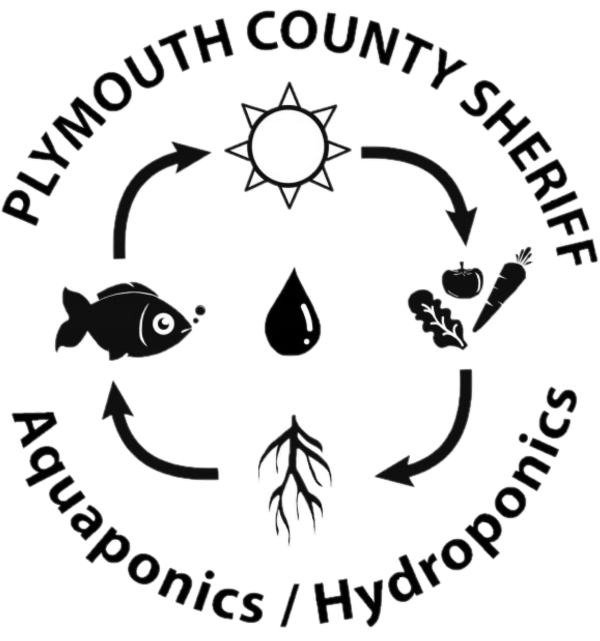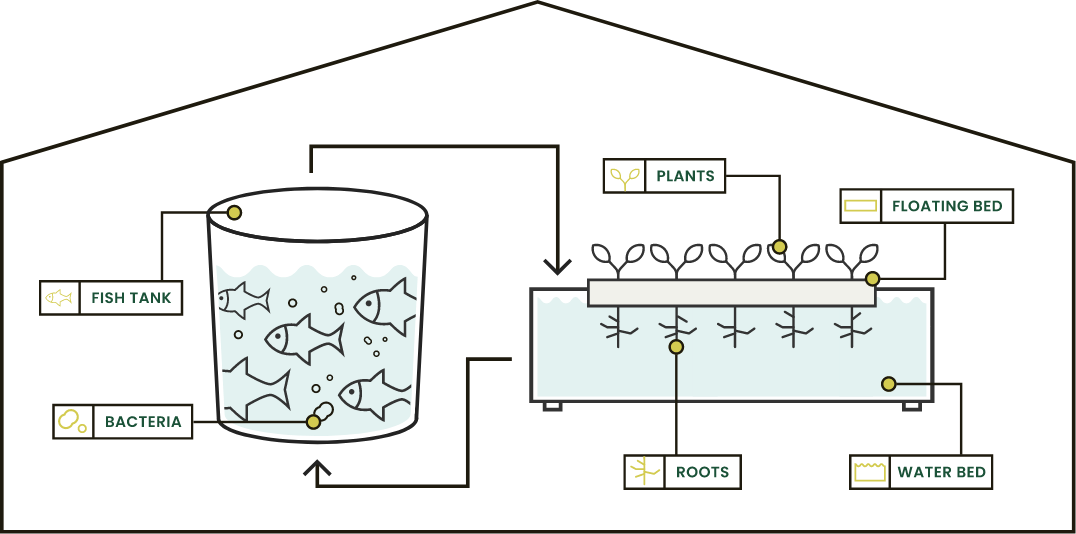
EDUCATE program participants on alternative organic protein and vegetable food growing systems that are produced naturally and sustainably.
EXPLORE growing systems that provide continuous growth cycles throughout the year with higher yields of produce while using 90% less water than required by soil.
EMPOWER anyone to grow their own food. From farmers with hundreds of acres of land to someone living in a one room apartment we can all grow healthy food. Often urban areas do not have the space for large scale farming operations. Through aquaponics/hydroponics technology we efficiently grow healthy food in many conditions.
Aquaponics is a method of farming that raises edible freshwater fish and vegetables together in a symbiotic environment. The nutrients fish produce in the water serve as a natural fertilizer for vegetables to grow. When the vegetables absorb those nutrients, they provide the fish with fresh, purified water. This process allows for the continuous recycling of water and nutrients.
Aquaponics is the most sustainable type of farming as it provides substantial food while using significantly less land, water, and energy than traditional farming methods. Aquaponic plants can yield 5-10 times more each year than soil-based farming methods all while using 90% less water. Tilapia will be the farming fish because they are lower in sodium, fat and calories than most processed meats.
Hydroponics is an efficient method for growing food indoors or in small spaces, without soil using water based nutrients and lighting.
 Learn more from our partner 100gardens
Learn more from our partner 100gardens
We can all play a part in creating positive changes that improve our environment and well -being. Growing fresh and healthy produce creates a positive impact in overcoming food insecurity and addressing health inequities in our community. This program provides a meaningful way to contribute and give back to others.
One of the core missions in corrections is helping people develop career and life skills. The Environmental Justice Education Program provides hands-on learning in STEM, educates with “Food As Medicine” and a health curriculum, and develops soft skills.
A portion of the produce is used in the Culinary Arts program within the correctional facility providing the setting to learn how to best use the produce grown.
Through our partner 100 Gardens, Inc. we are implementing a nationally recognized Aquaponics and Greenhouse certification for our program participants.
> When it comes to farming fish, Tilapia are among the most sustainable species to grow for food. Tilapia are lower in sodium, fat and calories than most processed meats. Tilapia contain high amounts of protein, nutrients and healthy fatty acids that aid in heart health, vision and joint strength. It takes 5-10 pounds of feed to produce just one pound of beef or pork, whereas tilapia need only 1-2 pounds of feed to grow to one pound. Tilapia can grow from fry to harvest-ready fish in just 42 weeks.
> Fish produce a natural nitrogen-heavy fertilizer which is ideal for growing leafy greens in aquaponincs.
> Fish produced are free from growth hormones and antibiotics.
> Seeds are started in the germination area where they grow for 2-3 weeks. Seedlings are then transplanted into the aquaponics system where they take just 21-28 days to reach maturity. With water, dissolved oxygen, nutrients from fish waste, and a controlled environment the mature plants can yield 5-10 times more each year than soil-based farming methods, all while using 90% less water.
> Aquaponics and hydroponics produces healthier and higher quality vegetables due to the elimination of herbicides, pesticides and harsh chemicals.
> Plants do NOT require soil to grow - using hydroponics, "you can grow plants in a watery solution of mineral nutrients instead of soil."
> Recycling water through the aquaponics and hydroponic systems result in the use of only 10% of the water needed to grow the same plants in soil.
> Farming fish takes pressure off of oceanic ecosystems in the wild.